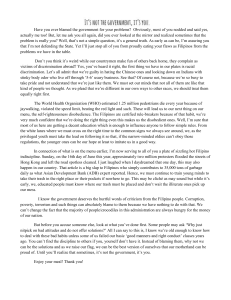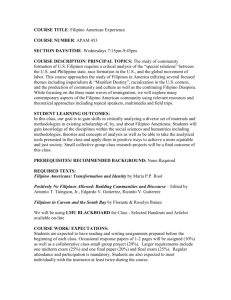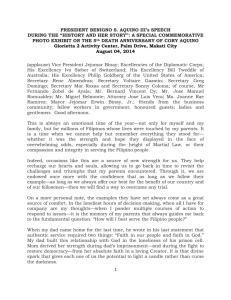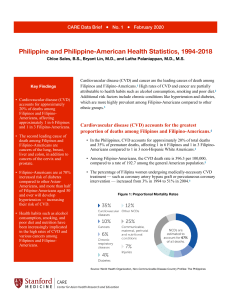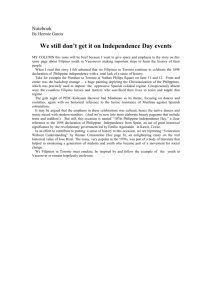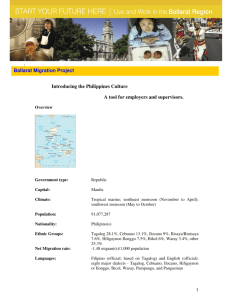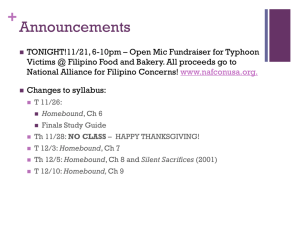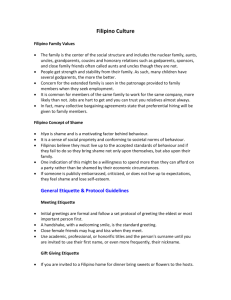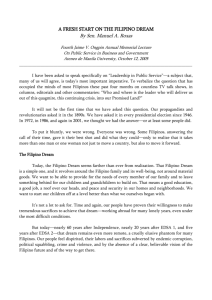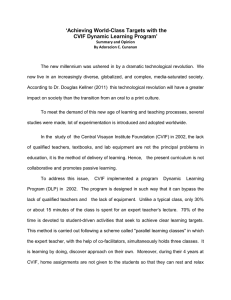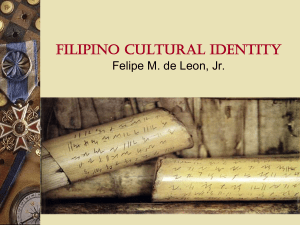Filipino Americans -Historical Statistics
advertisement
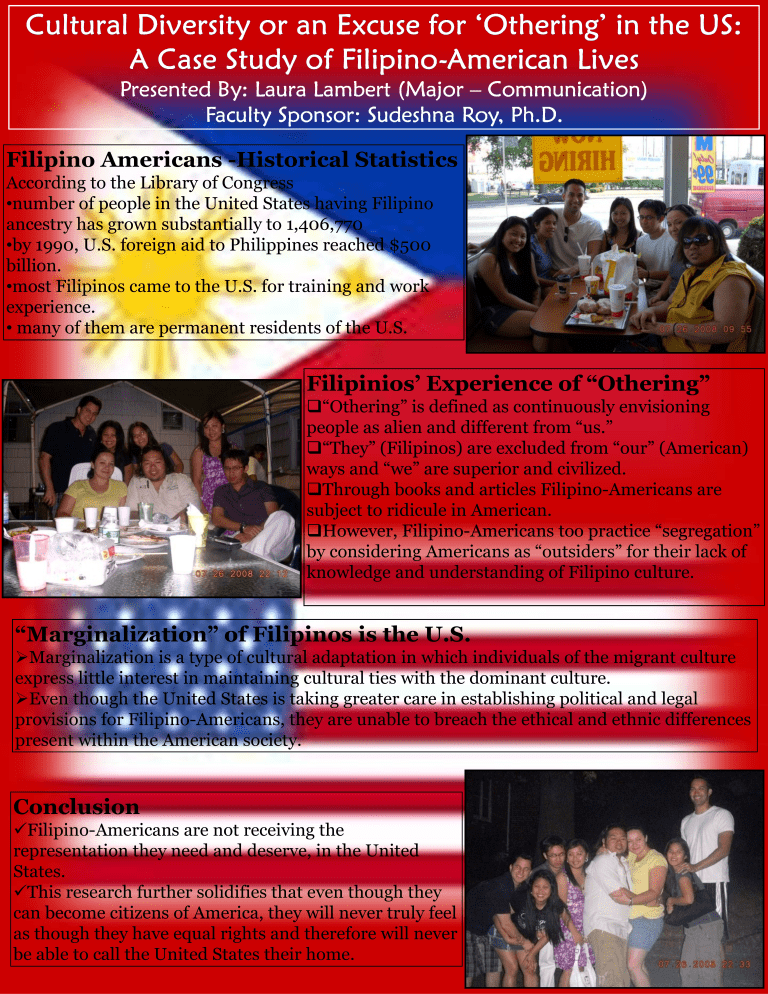
Filipino Americans -Historical Statistics According to the Library of Congress •number of people in the United States having Filipino ancestry has grown substantially to 1,406,770 •by 1990, U.S. foreign aid to Philippines reached $500 billion. •most Filipinos came to the U.S. for training and work experience. • many of them are permanent residents of the U.S. Filipinios’ Experience of “Othering” “Othering” is defined as continuously envisioning people as alien and different from “us.” “They” (Filipinos) are excluded from “our” (American) ways and “we” are superior and civilized. Through books and articles Filipino-Americans are subject to ridicule in American. However, Filipino-Americans too practice “segregation” by considering Americans as “outsiders” for their lack of knowledge and understanding of Filipino culture. “Marginalization” of Filipinos is the U.S. Marginalization is a type of cultural adaptation in which individuals of the migrant culture express little interest in maintaining cultural ties with the dominant culture. Even though the United States is taking greater care in establishing political and legal provisions for Filipino-Americans, they are unable to breach the ethical and ethnic differences present within the American society. Conclusion Filipino-Americans are not receiving the representation they need and deserve, in the United States. This research further solidifies that even though they can become citizens of America, they will never truly feel as though they have equal rights and therefore will never be able to call the United States their home.
